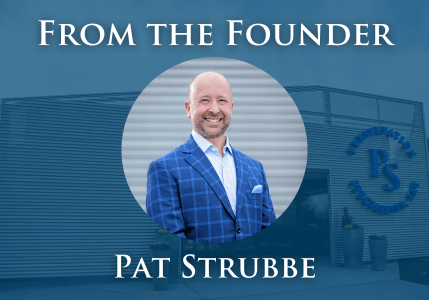From the Founder – How About a Little Good News?

This month I’m going to take a break from commenting on the current economy and markets. Instead, I thought I would share some good news.
I know this makes me a little weird. Doesn’t it seem like about 99% of the news is bad? Of course, the classic line is, ‘if it bleeds, it leads.’
Well, this month let’s take a break from all of that and focus on some good news! This month’s article is inspired by two books that I’ve read over the past few years: Leave Me Alone and I’ll Make You Rich by Deirdre Nansen McCloskey and Art Carden, and Superabundance by Marian L. Tupy and Gale L. Pooley
The bottom line is that these two books have given me a far greater appreciation for how blessed we are to be alive today and to be living in America. Bear with me as we take a quick stroll through some economic history.
Let’s start with some of my favorite quotes from these books: “Measured in 2011 U.S. dollars, Angus Maddison and a team of economists at the University of Groningen found that the global income per person per day in the reign of Caesar Augustus averaged $2. Thatʼs also where it stood when William the Conqueror set sail in 1066 to claim the crown of England. In 1800, the average daily income was $2.80. Put differently, in the 18 centuries that separated Augustusʼs emperorship and the presidency of Thomas Jefferson, per person daily income rose by less than 40 percent. Then, suddenly, everything changed. Between 1800 and 1900, the global GDP per person per day doubled. Income grew more than twice as much in one century as it had over the preceding 18 combined. By 2016, the number had risen to $40. In the United States, it stood at $145, and in Africa, the worldʼs poorest continent, at $13. In other words, global and American standards of living rose 14-fold and 24-fold, respectively, over the course of the last two centuries.”
Both of these books bring to light just how hard life was only a couple hundred years ago. Most of life was still about survival. Things like education were considered a luxury. So what gets the credit for such massive improvements around the world? “Human liberty—and not the machinery of coercion or investment, or even science by itself—is what made for a Great Enrichment, from 1800 to the present. The Enrichment was really, really “great”: three thousand percent per person.”
Basically, these improvements boil down to freedom: freedom from governmental control, and freedom to work, to invent, and to innovate.
The authors go on to make a bold statement:
“The proverbial phrase “The rich get richer and the poor get poorer” made sense in the zero-sum world before the Great Enrichment. But itʼs silly now. Nearly 90 percent of the worldʼs population lived in extreme poverty as late as 1820. The latest World Bank assessment estimates that the share of the worldʼs inhabitants living in extreme poverty fell below 8 percent in 2020.”
It is fascinating to me that there continue to be many improvements over more recent
periods as well.
The authors in Superabundance introduce an idea they call ‘Time Prices.’ Essentially, how long does each of us have to work to be able to buy a product. They note the following:
“Between 1900 and 2018, the average Time Price of 40 commodities fell by 96.1 percent for blue-collar workers; and between 1919 and 2019, the average Time Price of the 42 food items fell by 91.2 percent for blue-collar workers.”
So over the last 100 years, even with all of the inflation we have seen driving prices up, we can buy food with 1/10th of the work that it required a century ago. Simply amazing.
For the sake of time, I’ll share some more recent facts:
In 1960 it was estimated that half of the world population lived in extreme poverty. That number is now below 8 percent.
The share of people in the world with water from a clean source in 1980 was 58percent; in 2015, it was 88 percent.
The proportion of girls of primary school age enrolled in school rose worldwide from 65 percent in 1970 to 90 percent in 2015.
These are just a few of the encouraging facts shared in these books. Do we still have problems? Of course we do! But let’s not let the bad news get us depressed. Let’s be thankful for the improvements that have been made and for what we have.
It’s my hope that this brings you some good cheer and encouragement; and the next time someone talks about how depressing the news is, maybe you can share some good news with them.

Learn more about your current financial status and how you can achieve your retirement goals with our ‘No Obligation, No Cost’ Five Step Retirement Review.
Our financial planners have wide knowledge in South Carolina Retirement System as well as experience in retirement planning. sc tax rebate, etc. Contact us today!
Securities offered through Arkadios Capital, Member FINRA/SIPC. Advisory services offered through Arkadios Wealth. Preservation Specialists and Arkadios are not affiliated through any ownership
Ready to Take The Next Step?
For more information about any of the products and services listed here, schedule a meeting today or register to attend a seminar.